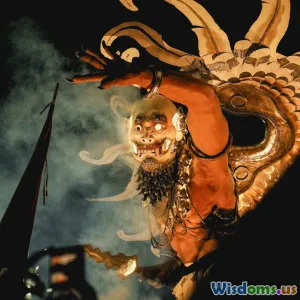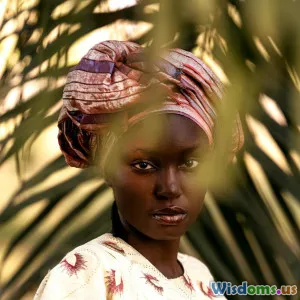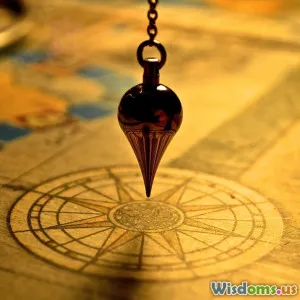
The Rise of Myth Inspired Pop Culture and Its Impact on Tradition
9 min read Explore how myth-inspired pop culture shapes tradition and redefines ancient tales for modern audiences worldwide. (0 Reviews)
The Rise of Myth Inspired Pop Culture and Its Impact on Tradition
Introduction
From the epic odysseys of Ancient Greece to the mystical folklore of Norse legends, myths have long served as humanity's narrative bedrock—shaping identities, morality, and cultural values. In recent decades, a compelling phenomenon has emerged: the rise of myth-inspired pop culture. Films, novels, video games, and television shows worldwide are resurrecting and reimagining mythic tales, breathing new life into age-old stories for contemporary audiences. This cultural resurgence invites us to explore an intriguing question: how does this pop culture revival of mythology influence, reshape, or even threaten traditional narratives and cultural heritage?
This article delves deeply into the rise of myth-inspired pop culture, examining its roots, proliferation, and impact on tradition across various societies. By analyzing examples, research, and expert commentary, readers will gain insight into the dynamic interplay between ancient lore and modern storytelling.
The Modern Resurgence of Mythology in Pop Culture
The Catalysts Behind the Revival
Several factors fuel the resurgence of myths in contemporary media:
-
Globalization and Digital Media: The internet and streaming platforms have facilitated unprecedented access to diverse mythic traditions—from African legends to East Asian folklore—allowing creators and audiences worldwide to share and appreciate these narratives.
-
Cultural Nostalgia and Identity: Amid rapid societal changes, myth-inspired stories offer a way to reconnect with cultural roots and foster identity, especially for younger generations seeking meaning.
-
Universal Themes and Archetypes: Myths deal with timeless themes like heroism, good vs. evil, and the quest for meaning, which resonate regardless of era, proving fertile ground for new interpretations.
Pop Culture Mediums Embracing Myth
-
Cinema: The Marvel Cinematic Universe, for instance, draws heavily from Norse mythology, introducing characters like Thor and Loki to billions globally. Films such as "Percy Jackson & the Olympians" adapt Greek myths for young audiences—balancing education and entertainment.
-
Video Games: Titles like "God of War" have revolutionized storytelling by weaving Norse and Greek myths into immersive gameplay experiences. Similarly, "Assassin’s Creed: Valhalla" explores Viking history and mythos.
-
Literature and Comics: Contemporary authors like Neil Gaiman have redefined mythology; Gaiman’s "American Gods" juxtaposes ancient gods in a modern setting, prompting dialogue on cultural change.
Quantifying the Popularity
A Statista report from 2022 highlighted that worldwide revenue generated by media depicting mythological themes (films, games, books) reached over $30 billion, demonstrating commercial viability alongside cultural impact.
Impacts on Traditional Myths and Culture
Revitalization and Accessibility
Popular culture serves as a conduit to introduce traditional myths to wider, often younger audiences. Complex, sometimes obscure myths become accessible gateways into heritage. For example, the widespread interest in "Yara", inspired by Brazilian indigenous mythologies featured in video games and art, revives neglected cultural narratives.
Adaptation vs Authenticity Debate
However, dramatization and modernization sometimes strip myths of cultural context or alter narratives significantly. Icelandic scholar Dr. Guðrún Ásta Helgadóttir notes that while adaptations bring myths to life, they risk "oversimplifying or commodifying sacred traditions."
For instance, popular reinterpretations of Medusa in Western media have framed her variably as monster, victim, or feminist icon—reflecting contemporary values but diverging from classical sources.
Cultural Appropriation Concerns
The popularity of mythic elements has occasionally led to controversial cultural borrowing without proper acknowledgment. Indigenous groups argue that their sacred stories shouldn’t serve only as entertainment or commercial products. Such concerns call for ethical storytelling practices that respect origin communities.
Preservation Through Innovation
Conversely, innovative depictions can inspire renewed academic interest and preservation efforts. The Māori narrative resurgence in New Zealand film and literature exemplifies how integrating traditional myths with modern storytelling helps sustain indigenous languages and knowledge.
Case Studies of Mythology in Pop Culture and Tradition
Marvel’s Norse Mythology Influence
Marvel’s cinematic universe has popularized Norse gods like Thor and Loki, blending traditional attributes with modern superheroes. While this has introduced Norse mythology to global audiences, scholars caution it simplifies complex theological ideas—transforming sacred deities into commercial products.
Despite critique, Marvel’s presence stimulated higher museum visits in Scandinavia, with increased ticket sales at exhibitions focusing on Viking history, suggesting positive cultural interest sparked by popular media.
Neil Gaiman’s American Gods
Gaiman’s novel reflects on immigration, cultural change, and faith, personifying deities adapting to new societal contexts. The book and television adaptation initiated conversations on religious evolution, cultural memory, and diaspora experiences, enriching understanding of mythology as a living tradition.
Video Games as Mythic Storytelling Platforms
Games like "God of War" (2018) highlight increasing narrative sophistication. By reinterpreting Norse myths through Kratos’s journey, they offer immersive educational experiences alongside entertainment. This approach demonstrates the role of interactive media in transmitting and evolving myths.
Future Prospects and Ethical Storytelling
Myth-inspired pop culture is poised for continued growth. However, to ensure positive cultural impact:
-
Collaboration with Traditional Custodians: Engaging with indigenous and cultural communities can lead to authentic, respectful representations.
-
Educational Integration: Utilizing pop culture as entry points in educational settings can deepen traditional knowledge appreciation.
-
Balanced Storytelling: Creators should strive to balance creative freedom with cultural sensitivity to honor myths’ origins.
Awareness of these principles helps maintain the delicate fabric connecting myth to tradition.
Conclusion
The rise of myth-inspired pop culture is a multifaceted phenomenon reshaping how humanity understands and relates to ancient stories. It has democratized access to myths and catalyzed cultural curiosity, forging bridges between past traditions and modern expression. Yet, it also challenges the authenticity and preservation of traditions, urging careful handling of cultural narratives in a globalized world.
Ultimately, myth-inspired pop culture holds the promise to revitalize traditions creatively—provided respect and ethical considerations remain central. For readers and creators alike, engaging critically with these evolving stories offers an opportunity to honor heritage while embracing the imaginative possibilities of today’s storytelling.
References:
- Statista, "Global revenue from myth-based media and entertainment," 2022.
- Guðrún Ásta Helgadóttir, "Myth Adaptation and Cultural Context in Iceland," Journal of Folklore Studies, 2021.
- Dr. Linda Tuhiwai Smith, "Decolonizing Methodologies," 2012.
- Official Marvel Studios Press Materials.
- "God of War" Development Diaries, Santa Monica Studio.
Rate the Post
User Reviews
Popular Posts





















